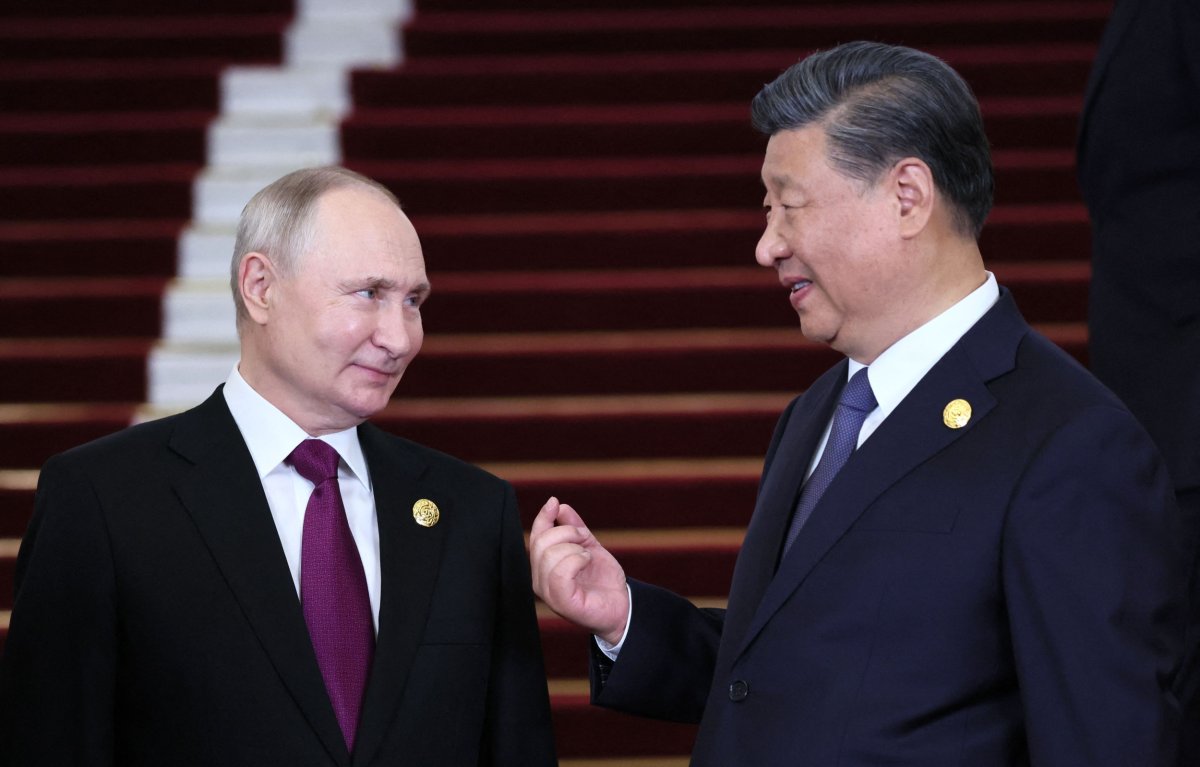As Putin visited Beijing for the Third Belt and Road Forum, the bromance between Chinese leader Xi Jinping and Russian President Vladimir Putin was on full display.
Putin called Xi his "dear friend" during his address to the forum earlier on Wednesday. Xi returned with pleasantry by calling Putin "my old friend" during their bilateral meeting later in the day.
The Belt and Road Initiative (BRI) is Xi's signature $1 trillion infrastructure financing project, which has increasingly adopted a political tone in recent years.
Xi's meeting with Putin was closely watched in China. The hashtag "Xi Jinping holds talks with Putin" was the number one trend on the Chinese search engine Baidu.
"The political mutual trust between the two countries has been continuously deepened, strategic coordination has been close and effective, bilateral trade volume has reached a record high, and we are constantly moving towards the $200 billion goal we jointly set," Xi told Putin during their meeting.

Despite highly positive remarks on China-Russia relations, Xi avoided mentioning the "no-limits partnership," which Beijing has stopped citing since the beginning of the Ukraine war.
Xi told Putin that China and Russia should "contribute to the development and revitalization of the two countries, safeguard international fairness and justice, and promote the common development of the world." These remarks by Xi were closely watched as the two leaders met under the shadow of the Israeli-Palestinian conflict.
Chinese propaganda outlets have blamed the U.S. for the conflict, despite calling for a ceasefire.
After meeting Xi, Putin was seen heading towards another meeting, followed by two Russian naval officers in uniform, each carrying a briefcase. The briefcase in the footage is called "Cheget," which would allow Putin to launch a nuclear attack under certain circumstances. Russia's nuclear briefcase is rarely filmed publicly.
Meanwhile, Xi took to the podium to defend the record of the Belt and Road Initiative.
"What has been achieved in the past ten years demonstrates that Belt and Road cooperation is on the right side of history. It represents the advancing of our times and the right path forward," said Xi in his keynote speech.
Xi said that in the past 10 years, China had become the leading trading partner of more than 140 countries and partners increasingly integrated into the world economy.
"China can only do well when the world is doing well. When China does well, the world will get even better," said Xi, justifying the BRI's expansion.
In his speech, Xi Jinping announced the China Development Bank and the Export-Import Bank of China would provide new financing under the Belt and Road Initiative worth $47.9 billion. Beijing's existing investment under BRI has come under scrutiny as its lending practices remain opaque.
In Putin's presence, Xi added that China would build a new logistics corridor across Eurasia to connect China with Europe. Beijing's influence in Eurasia, traditionally Russia's sphere of influence, has grown in the past few years and undercut the Kremlin's ability to influence Central Asian countries.
Putin spoke about BRI's presence in Eurasia and Russia's projects in the region.
Putin said the BRI is "consistent with Russia's initiative to establish a Greater Eurasian Partnership of "cooperation and interaction." Putin's war in Ukraine has left Russia dependent on China, and Putin doesn't have much of a choice in BRI expanding westward from China into Central Asian republics.
Xi also added in his address that China would set up a "Silk Road e-commerce zone," allowing more free-trade zones and investment agreements in BRI countries.
Uncommon Knowledge
Newsweek is committed to challenging conventional wisdom and finding connections in the search for common ground.
Newsweek is committed to challenging conventional wisdom and finding connections in the search for common ground.
About the writer
Aadil Brar is a reporter for Newsweek based in Taipei, Taiwan. He covers international security, U.S.-China relations, and East Asian ... Read more
To read how Newsweek uses AI as a newsroom tool, Click here.








